Politics
Human rights breaches in China, Sudan and Tajikistan
Human rights breaches continue in these countries, with persecution in China, the threat of famine in Sudan and repression of the media in Tajikistan
On Thursday, the European Parliament adopted three resolutions on human rights issues in China, Sudan and Tajikistan.
The ongoing persecution of Falun Gong in China, notably the case of Mr Ding Yuande
MEPs demand the immediate and unconditional release of Mr Ding Yuande and all Falun Gong practitioners in China. They strongly condemn the persecution of Falun Gong practitioners, and other minorities, including Uyghurs and Tibetans by the People’s Republic of China (PRC). They call for the PRC to end its domestic and transnational surveillance, control and suppression of religious freedom.
MEPs call on the EU and member states to support and facilitate an international investigation into the persecution of Falun Gong, and to raise the persecution of religious minorities with the Chinese authorities. Member states should suspend extradition treaties with the PRC, MEPs add, and use national sanctions regimes and the EU Global Human Rights Sanctions Regime (EUGHRSR) against all perpetrators, as well as entities that have contributed to the persecution of Falun Gong practitioners in China and abroad.
MEPs also want EU measures to include visa refusals, the freezing of assets, expulsion from EU territories, criminal prosecution, including on the basis of extraterritorial jurisdiction, and the initiation of international criminal charges against the perpetrators.
The text was adopted by a show of hands. The full resolution will be available here (18.01.2024).
The threat of famine following the spread of conflict in Sudan
MEPs strongly condemn the continuing violence between rival armed factions in Sudan, alongside human rights violations and food insecurity. They call on all parties to the conflict to immediately cease hostilities and facilitate safe and timely humanitarian access for civilians suffering shortages of food, water and fuel and very high prices for essential items .
They want the UN Security Council to sanction violations of the UN arms embargo on Darfur, and to expand the embargo to the whole of the country.
The EU and member states should increase emergency funding for the humanitarian response, MEPs add, underlining the need for specific support for survivors of sexual violence, and make use of the EU Global Human Rights Sanctions Regime (EUGHRSR) mechanism against those responsible for human rights violations.
The text was adopted by a show of hands. The full resolution will be available here (18.01.2024).
Tajikistan: state repression against the independent media
MEPS strongly condemn the ongoing crackdown against independent media, government critics, human rights activists and independent lawyers, and the closure of independent media and websites in Tajikistan.
They urge the authorities to stop persecuting lawyers defending government critics and journalists, immediately and unconditionally release those arbitrarily detained and drop all charges against them, including human rights lawyers Manuchehr Kholiknazarov and Buzurgmehr Yorov.
Parliament urges the Tajik Government to ensure that detainees have access to adequate health care and calls for a thorough investigation into allegations of mistreatment in custody, and the bringing to justice of those responsible. MEPs insist that the respect for freedom of expression in Tajikistan should be taken into account when assessing the application of the Generalised Scheme of Preferences (GSP+) and for the negotiations of a new EU-Tajikistan Partnership and Cooperation Agreement. They call on the Commission, the EEAS and the Member States to increase support for civil society, human rights defenders and independent media workers in Tajikistan, including funding.
The text was adopted 481 votes in favour, 25 against with 26 abstentions. The full resolution will be available here (18.01.2024).
Politics
Elevating EU-Central Asia Relations: A New Era of Strategic Partnership
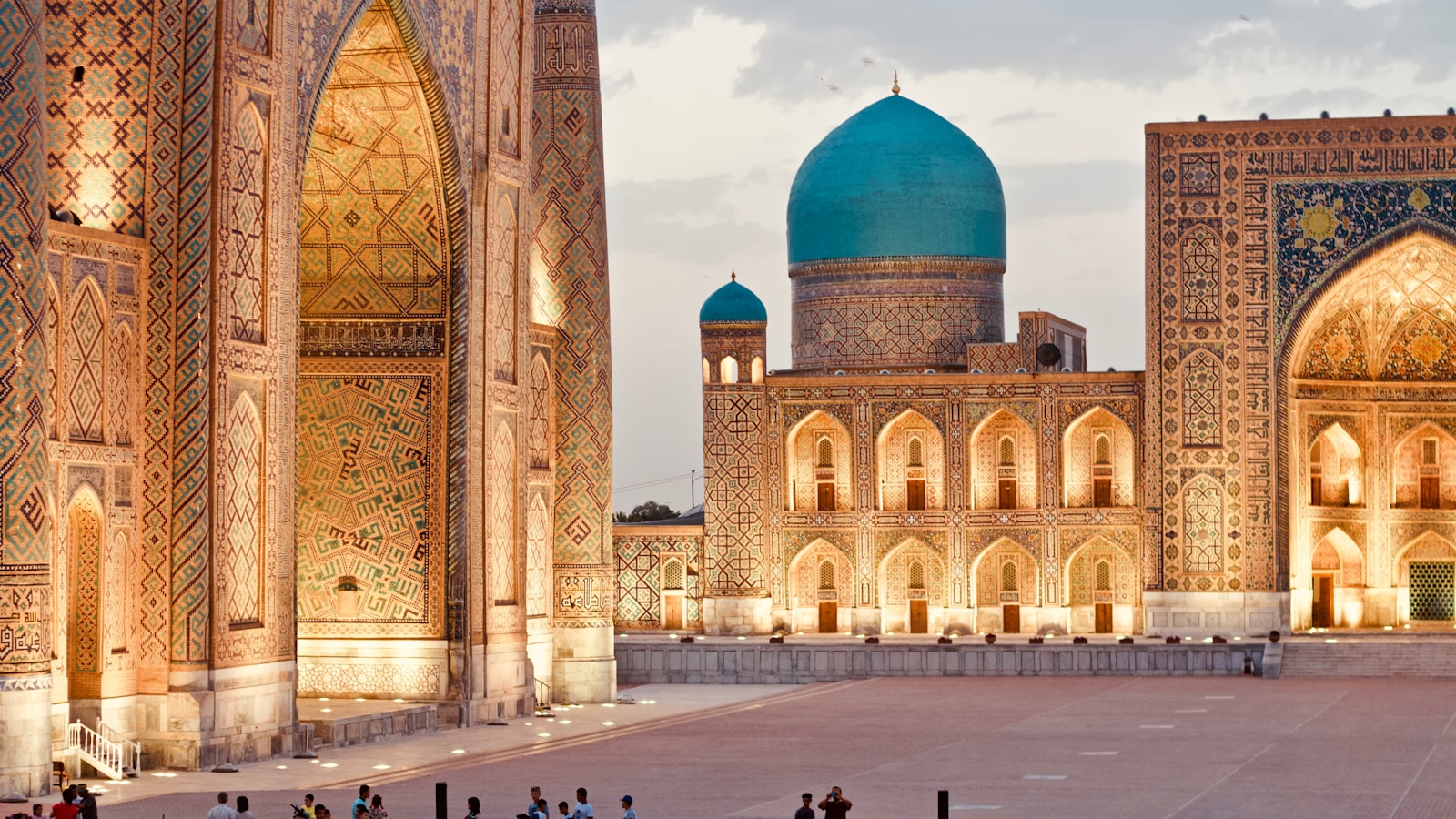
In a historic milestone for Europe-Asia relations, Antonio Costa, President of the Council of the European Union, co-chaired the first-ever EU-Central Asia Summit in Samarkand, Uzbekistan. Against the backdrop of one of Central Asia’s most storied cities, Costa delivered a visionary speech that underscored the deepening ties between the two regions and charted an ambitious roadmap for the future.
A Historic Meeting in the Heart of Central Asia
Opening his remarks, Costa expressed gratitude to Uzbek President Shavkat Mirziyoyev for hosting the summit in Samarkand, a city celebrated as a crossroads of civilizations throughout history. “Today, I am proud to be part of a new chapter in the modern history of Samarkand,” he said, emphasizing the significance of elevating EU-Central Asia relations to a “dynamic ‘strategic’ partnership.”
The summit marks three decades since diplomatic relations were established between the European Union and the five Central Asian nations—Kazakhstan, Kyrgyzstan, Tajikistan, Turkmenistan, and Uzbekistan. Reflecting on this journey, Costa noted how cultural exchanges, scientific collaboration, and trade have long connected Europe and Central Asia. His recent visits to Bukhara and Samarkand reinforced his appreciation for the region’s rich heritage and its enduring role in shaping global connectivity.
Multilateralism in an Uncertain World
In today’s volatile international landscape, Costa emphasized the critical importance of a rules-based multilateral order. “Our meeting today encourages even more EU-Central Asia cooperation in multilateral fora,” he stated, reinforcing their shared commitment to peace and prosperity. This sentiment was echoed by the announcement of the Samarkand Climate Forum , which highlights regional efforts to tackle climate change—a challenge Costa described as existential for both regions.
Climate change poses grave threats, including water scarcity, pollution, and biodiversity loss, all of which jeopardize security and economic stability. To address these issues, Costa pointed to the work of Europe’s two Climate Banks—the European Bank for Reconstruction and Development (EBRD) and the European Investment Bank (EIB) —which are already supporting climate action projects in Central Asia. He pledged to expand this cooperation significantly, signaling a forward-looking approach to sustainable development.
Strengthening Economic Ties Through Innovation
Underpinning the strategic partnership is a robust economic relationship. The EU remains one of Central Asia’s largest investors and second-largest trading partner. Building on frameworks like the 2019 EU Strategy for Central Asia , the 2023 Joint Roadmap , and the Global Gateway Initiative , Costa outlined plans to explore new areas of collaboration, including digital technologies, transport infrastructure, and raw materials.
“Our partnership is a journey, not a destination,” Costa remarked, calling on leaders to identify opportunities for deeper engagement. With initiatives like the Global Gateway aimed at fostering sustainable investments, the EU is positioning itself as a key ally in Central Asia’s development trajectory.
Addressing Shared Security Challenges
Security emerged as another cornerstone of the summit agenda. Costa commended ongoing efforts to combat transnational threats such as terrorism, drug trafficking, and violent extremism. Highlighting programs on border management and counterterrorism, he praised the EU’s longstanding support for regional stability. Notably, the newly agreed-upon dialogue on counterterrorism and violent extremism represents a significant step forward.
He also lauded the recent resolution of border disputes, specifically citing the historic agreement signed by Tajikistan and Kyrgyzstan earlier this year. “In turbulent times, we need more examples like this to solve conflicts peacefully,” Costa said, underscoring the value of diplomacy.
Turning to Afghanistan, Costa acknowledged the spillover risks posed by insecurity in the region. “Central Asia has valuable experiences and insights on how to best mitigate these risks,” he observed, advocating for joint efforts to ensure regional stability.
Standing Firm Against Russian Aggression
Perhaps the most poignant segment of Costa’s address focused on Russia’s war in Ukraine. “This war goes far beyond Ukraine and Europe,” he declared. “Russia’s aggression is an assault on the very principles of the rules-based international order.” Costa reiterated the EU’s unwavering support for a comprehensive, just, and lasting peace in Ukraine, urging Central Asia to join in defending multilateralism.
“The principles laid out in the United Nations Charter are not just words on paper—they represent the shared commitment of nations to prevent conflicts, promote peace, and safeguard the well-being of our citizens,” he stressed. In light of growing disinformation campaigns, Costa affirmed the EU’s dedication to strengthening resilience against such threats, both within its borders and among partner countries.
Investing in the Future
Concluding his remarks, Costa captured the spirit of the summit with its official motto: “Investing in the future.” He expressed optimism about the potential for EU-Central Asia cooperation to serve as a model of what can be achieved through mutual trust and ambition. “Our relations have never been stronger,” he asserted, “and now, we must move forward with ambition to write the next chapters of the strategic partnership between Central Asia and the European Union.”
As delegates left the ancient halls of Samarkand, they carried with them a renewed sense of purpose and possibility. Under Antonio Costa’s leadership, the EU has signaled its readiness to forge a transformative alliance with Central Asia—one rooted in shared values, common goals, and a commitment to building a better world.
This inaugural summit may well prove to be a turning point in Europe-Asia relations, setting the stage for a new era of collaboration and progress.
Politics
Europol’s Capture25 Photo Competition: A Lens on Law Enforcement’s Mission to ‘Make Europe Safer’

The Hague, April 4, 2025 — Europol has launched its annual photo competition, Capture25 , inviting law enforcement officers across the EU and partner countries to showcase their skills behind the lens. This year’s theme, ‘Making Europe Safer’ , calls for images that highlight the diverse efforts of officers working tirelessly to protect citizens—from combating organized crime to fostering community trust.
A Celebration of Law Enforcement’s Unsung Heroes
Europol’s competition, now in its latest edition, recognizes the critical role photography plays in documenting law enforcement’s daily realities. “Photography preserves perishable evidence,” notes a forensic photography expert, emphasizing how images capture everything from crime scenes to victim injuries, aiding investigations and legal proceedings 357. Beyond forensics, the contest also celebrates the human side of policing, such as officers on patrol, training exercises, and community engagement initiatives.
Capturing Cooperation and Creativity
As Europol’s work often hinges on international collaboration, submissions showcasing cross-border operations are particularly encouraged. “Police have long applied photography as an evidentiary and surveillance technology,” historians observe, underscoring its role in maintaining social order 4. This year, creative interpretations of the theme are also welcome, including abstract compositions or innovative techniques that challenge conventional perspectives—provided they avoid AI-generated or enhanced content. “Traditional photography methods should remain at the core,” Europol insists, aligning with debates over authenticity in law enforcement imagery 68.
How to Participate
Eligible photographers—law enforcement personnel from EU Member States or countries with Europol agreements—can submit up to five entries by August 8, 2025. Winners will receive a trip for two to Europol’s headquarters in The Hague, with their work featured in calendars, social media, and other publications.
A Tribute to a Vital Profession
“Whether professional or amateur, Europol is excited to see their skills in action,” the agency states, urging participants to “capture the best moments of law enforcement.” As the competition underscores, these images not only serve as historical records but also remind the public of the dedication behind the badge 19.
Politics
Commission presents a European internal security strategy
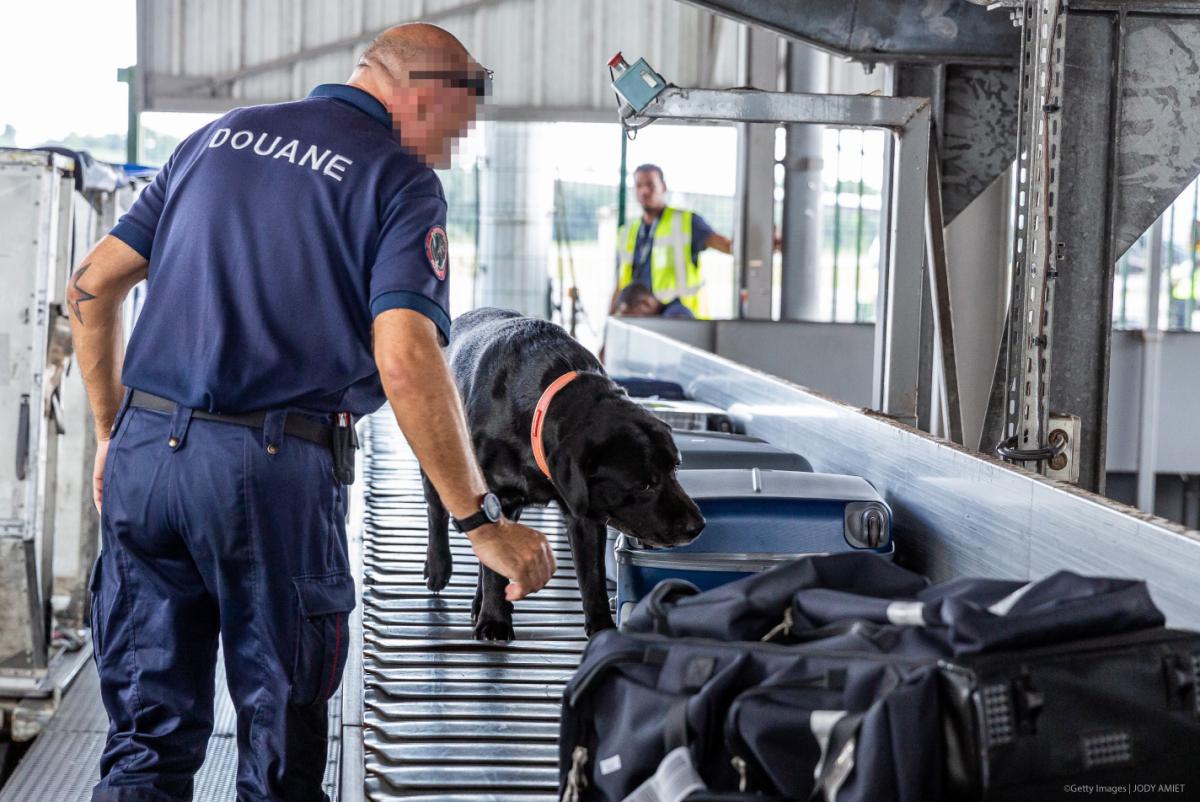


DISCLAIMER: Information and opinions reproduced in the articles are the ones of those stating them and it is their own responsibility. Publication in The European Times does not automatically means endorsement of the view, but the right to express it.
DISCLAIMER TRANSLATIONS: All articles in this site are published in English. The translated versions are done through an automated process known as neural translations. If in doubt, always refer to the original article. Thank you for understanding.

– Advertisement –
– Advertisement –
The Commission has presented ProtectEU, a new European internal security strategy to support EU countries in guaranteeing security for its citizens. It sets out a workplan with a stronger legal framework, better information sharing and closer cooperation.
To address increasing security and hybrid threats like terrorism, organised crime, cybercrime, and attacks on critical infrastructure, Europe needs to review its approach to internal security. The strategy aims to adopt a whole-of-society approach that includes citizens, businesses, researchers, and civil society who can contribute to better safety for all.
Key objectives and actions:
- a new European internal security governance
- anticipating security threats through new ways of sharing intelligence
- more effective tools for law enforcement and stronger justice and home affairs agencies
- building resilience against hybrid threats
- fighting serious and organised crime
- combatting terrorism and violent extremism
- the EU as a strong global player on security
The actions are backed by evidence from the EU Serious and Organised Crime Threat Assessment (EU-SOCTA). The strategy complements the preparedness union strategy and the European defence white paper. Together with the forthcoming European Democracy Shield, they form a comprehensive framework for a safe, secure, and resilient EU.
For more information
Press release
Factsheet
Questions and answers
Security and defence
The European internal security strategy
Internal Security
Source link
More from the author
– EXCLUSIVE CONTENT –
-

 Health & Society4 days ago
Health & Society4 days agoThe Art of Earthing – Grounding Yourself for Better Physical Health
-

 Health & Society5 days ago
Health & Society5 days agoNatural Sleep Solutions – Creating a Restorative Nighttime Routine
-

 Health & Society6 days ago
Health & Society6 days agoCold Showers and Beyond – Embracing Temperature Therapy for Vitality
-

 Sports5 days ago
Sports5 days agoInter: Acerbi’s renewal is already there and the clause is no longer a concern
-
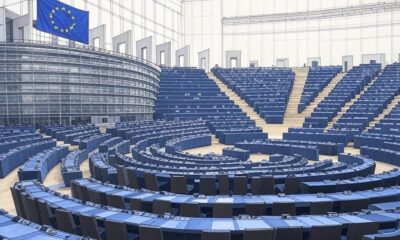
 Politics2 days ago
Politics2 days agoEU Parliament Tackles Steel Industry, Fundamental Rights, and Budget Priorities in Plenary Session
-

 Sports2 days ago
Sports2 days agoNBA, Steph Curry and Nikola Jokic show: Memphis knockout, Minnesota no
-
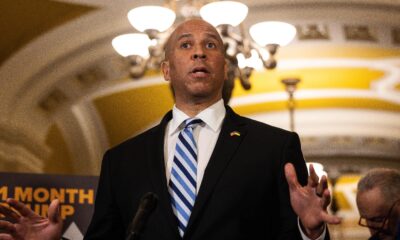
 EU & the World2 days ago
EU & the World2 days agoIs Cory Booker Still Speaking? How Long His Filibuster Lasted
-
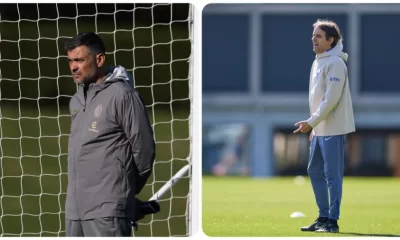
 Sports2 days ago
Sports2 days agoMilan-Inter: Conceiçao with a doubt, Inzaghi changes six








